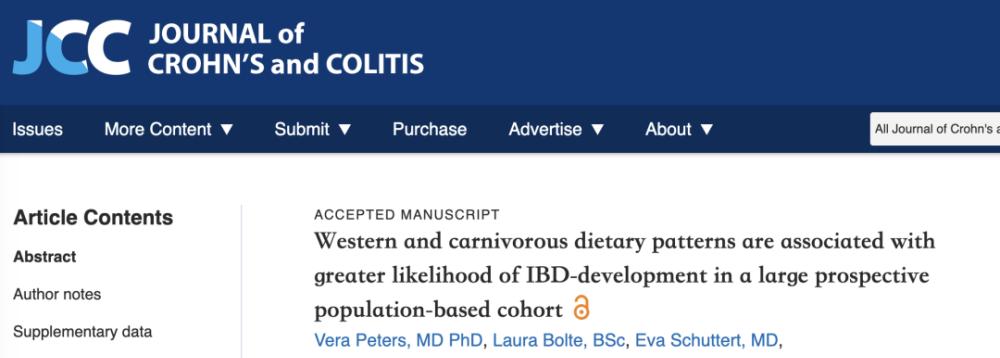Crohn's disease is an unexplained inflammatory disease of the intestine that occurs anywhere in the gastrointestinal tract but is more common in the terminal ileum and right half of the colon. Both this disease and chronic nonspecific ulcerative colitis are collectively referred to as inflammatory bowel disease (IBD).
Crohn's disease (CD) and ulcerative colitis (UC), collectively known as inflammatory bowel disease (IBD), are chronic inflammatory diseases. IBD is currently thought to be a combination of environmentally triggered and genetically predisposed individuals with dysbacteriosis, including an enhanced immune response due to dietary abnormalities.
Westernized lifestyles have been thought to contribute to the rise in the incidence of IBD in developing countries. In contrast, the Mediterranean diet, widely recognized as a healthy eating model with anti-inflammatory effects, was associated with a significantly reduced risk of late-onset CD. Therefore, it is believed that dietary patterns have great clinical significance.
However, prospective data on nutrition and disease onset are limited. Therefore, this study aims to analyze dietary patterns and the odds of IBD development.

A total of 125445 people were included in the study, and 224 developed UC and 97 developed CD over a 14-year follow-up period. All participants completed a health-related diet questionnaire (FFQ) at baseline. The researchers performed principal component analysis (PCA) on the study data to derive post-mortem diet patterns, including protein scores, healthy eating indexes, LifeLines diet scores (LLDS), and alternative Mediterranean diet scores. Logistic regression models between dietary patterns, scores, and IBD development assess correlations between all variables.
A total of five dietary patterns were identified for principal component analysis, and the findings found that patterns characterized by heavy intake of snacks, prepared meals, non-alcoholic beverages, sauces, and small amounts of vegetables and fruits were associated with a higher likelihood of CD (OR: 1.16, 95% CI: 1.03-1.30, p = 0.013). Patterns containing red meat, poultry, and processed meats were associated with an increased likelihood of UC development (OR: 1.11, 95% CI: 1.01–1.20, p = 0.023). A high diet quality score (LLDS) was associated with a reduced risk of CD (OR: 0.95, 95% CI: 0.92-0.99, p = 0.009).
This study found that Western dietary patterns are associated with greater CD development potential, meat-eating patterns are associated with UC development, and relatively high dietary quality (LLDS) is protective of CD development. Our study highlights the importance of assessing dietary patterns to help prevent IBD in the general population.
Resources:
[1] Vera Peters. Et al. Western and carnivorous dietary patterns are associated with greater likelihood of IBD-development in a large prospective population-based cohort . Journal of Crohn's and Colitis.2021.
Written by | xuyihan
Edit | Swagpp